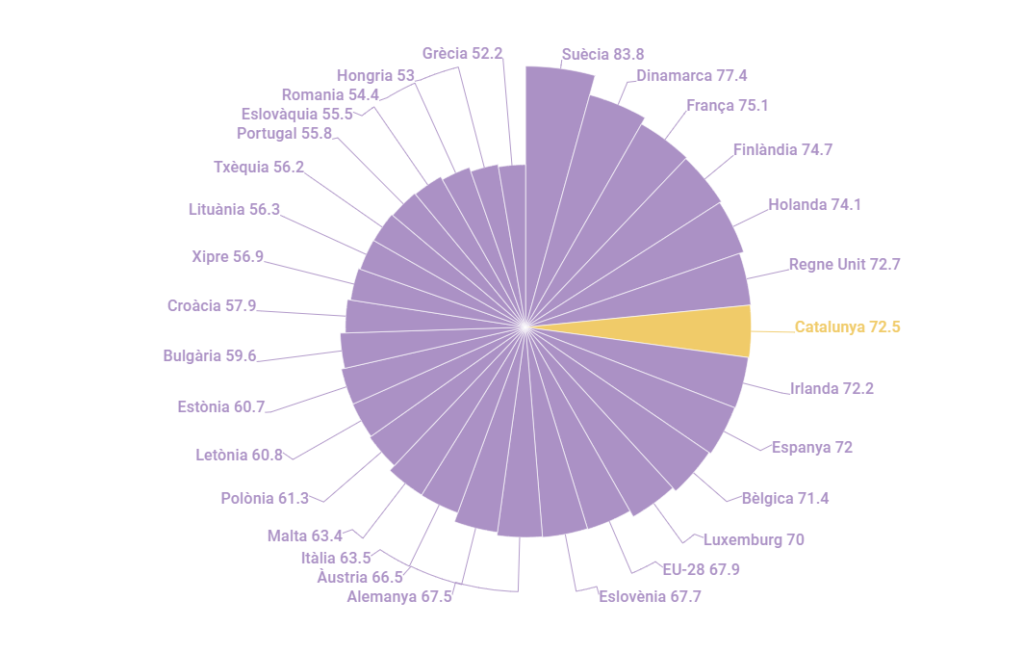08.03.2021 - 11:55
|
Actualització: 08.03.2021 - 12:55
How does Catalonia compare to other European countries when it comes to gender equality? Relatively good, but with a lot of room for improvement—that, according to a joint study by Catalonia’s Gender Equality Observatory and the IEC Statistics Institute published in February 2021 with figures of 2018.
The two research centers, funded by the Catalan government, have estimated Catalonia’s position in the European Union’s Gender Equality Index, which draws from 31 specific indicators such as the gender gap in income, the division of housework tasks, or the number of government ministries led by women.
Above EU average
With 72.5 points over 100, Catalonia would rank seventh among the EU’s 27 member states. For instance, that puts it slightly ahead of Spain as a whole (72), and above the EU average (67.9). The list is topped by Sweden (83.8) and Denmark (77.4), with Hungary (53) and Greece (52.2) at the bottom.
Out of the six ‘core domains’ that encompass the general index, Catalonia ranks worst in “Knowledge” (66.4) and “Power” (63), with the former accounting for education attainment, participation, and segregation, and the latter for women’s representation in areas such as politics, companies’ boards of directors, and social institutions.
While Catalonia gets its poorest score in the “Power” section, outperformed by Spain as a whole (69.4), it still ranks far above the EU average (53.5). The “Knowledge” score, however, is surpassed both by the EU average (63.6) and Spain (67.6).
Gender imbalance in power and universities
Within “Knowledge”, the worst-rated indicator accounts for segregation at the university level (53.2); that is, an indicator reflecting the gender imbalances in different fields of studies.
A similar trend emerges at the “Work” domain (75.4), where Catalonia ranks higher than the EU (72.2) and Spain (73.2). While participation in the job market ranks high (84.4), the segregation of jobs (67.4) in positions overwhelmingly occupied by either men or women leaves a lot of room for improvement in the area.
In the “Money” domain, measuring imbalances in access to financial resources and women’s economic situation, Catalonia lost 1.5 points from 2005 to 2012 as a result of the financial crisis, dropping to 76.6. It has since recovered and risen to 80 points, better than Spain as a whole (77.8) and barely worse than the EU average (80.6)
Regarding “Time”, Catalonia has 73.7 points, more than the EU average (65.7) and Spain (64), but far from Sweden (90.1). From 2017 to 2018, when the latest data was compiled, Catalonia lost 0.2 points. The indicator reflects the uneven burden faced by women regarding housework and care activities.
The highest-rated indicator for Catalonia (90.8), Spain (90.1), and the EU (88) as a whole is “Health”, measuring aspects such as one’s own health perception, life expectancy, eating habits, or physical exercise.

